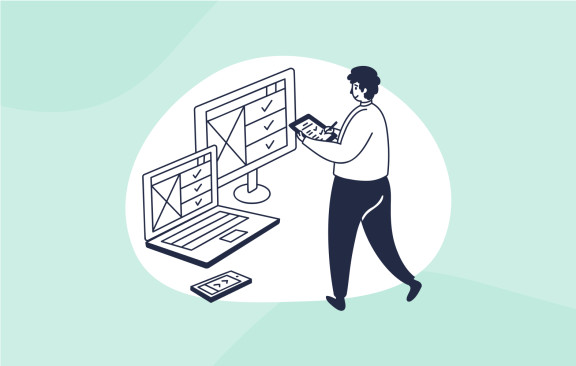Starting an Online Business
Want to start selling on eBay, Amazon, or your own store, but don't know where to start? You're in the right place! This section is all about getting you set up with your very own online business.

Learn How to Start a Business
What's a side hustle, and do I need to register my business? What do I need to consider when deciding on a business model? All these questions and more, answered by our seasoned experts ?
How to Choose Between Dropshipping and Wholesale for Your eCommerce Growth and Profit Goals
The eCommerce landscape is evolving fast, online retail sales are projected to hit $7.4 trillion globally. With so much at stake, picking the right supply model for your store isn’t just a detail; it’s a make-or-break decision. Should you chase flexibility with dropshipping, or grab the reins with wholesale? Let’s break down what actually matters, so you can make a move that fits your ambitions (and your wallet). Ready to choose your path?
Launch a Revenue-Ready Online Store in Just 7 Days Without Compromising on Quality or Growth
Launching an online store that’s actually ready to make money-fast-used to take months. Now, with the right playbook, you can go from zero to revenue-ready in just a week, without sacrificing quality. With e-commerce competition fiercer than ever and customer expectations at an all-time high, speed and precision are non-negotiable. Ready to launch smarter, not just faster? Let’s break down how you can ship a store that’s built to last, and cash in, right from day one.
The 7-Day Store Opportunity
Welcome to the fast lane of e-commerce. The e-commerce landscape is evolving at breakneck speed, and with the right strategy, over 30% of new stores are making their first sale within just a week. But what sets these successful launches apart? They follow a plan that’s not only quick but also revenue-ready from day one.
Being "revenue-ready" me
Unlock Higher Sales and Global Growth by Choosing and Optimizing the Perfect Payment Gateway
Online shopping is booming, global eCommerce sales are projected to hit over $7 trillion. But here’s the catch: if your payment gateway isn’t smooth, secure, and scalable, you’re leaving money on the table. In a world where shoppers expect instant, frictionless payments, choosing the right gateway is mission-critical. Ready to stop losing sales and start scaling? Let’s break down how to pick and set up the perfect payment gateway for your online store.
The eCommerce Payment Revolution
Welcome to the dawn of the eCommerce payment revolution, where seamless digital transactions have become the lifeblood of online retail. Imagine this: 80% of abandoned shopping carts today are a direct result of clunky payment processes. It's evident that in our fast-evolving digital marketplace, the efficiency of your payment gateway doesn't just affect profits; it lit
Conquer Global eCommerce Expansion With Proven Strategies for Cross Border Growth and Success
Global eCommerce is booming cross-border online sales are projected to surpass $1 trillion. But for every brand that nails international expansion, dozens stumble over hidden cultural and logistical landmines. If you’re eyeing new markets, mastering these challenges isn’t optional, it’s survival. Ready to break through? Let’s get tactical about going global.
The Urgency of Global eCommerce
As we edge closer, the urgency for businesses to expand into global eCommerce has never been more critical. The landscape is witnessing a seismic shift, with cross-border eCommerce growing at an impressive rate, outpacing domestic sales by a substantial margin. This growth is expected to be twice that of domestic online sales, underscoring a pivotal opportunity for savvy sellers who are ready to embrace international markets.
Why is this surge happening? For s
How to Make a Website
Building your own website and store is both exciting and daunting! There are lots of things to consider and the answers aren't always obvious. Learn all the must-know nitty gritty in this section.
Which Platform Powers Your eCommerce Growth and Maximizes SaleHoo Integration: WooCommerce or Shopify
The eCommerce world is booming, Global online retail sales are projected to top $7 trillion. If you’re serious about launching or scaling your store, picking the right platform is make-or-break, especially if you want seamless SaleHoo integration for sourcing and automation. So, which platform fits your vision, WooCommerce or Shopify? Let’s break down the facts, trade-offs, and real-world use cases so you can make a decision that actually works for your business.
The Platform Showdown
As we look ahead, the eCommerce landscape continues to evolve rapidly, with competition becoming more intense than ever. In this environment, having the right technological infrastructure isn't just beneficial, it's essential. Your choice of platform can significantly boost or hinder your growth, customer satisfaction, and profits. WooCommerce and Shopify stand out as the leading c
12 Essential Elements Your eCommerce Site Needs to Boost Sales in 2026 (with Examples for each!)
As the world of eCommerce evolves, simply having a website isn't enough. Your site must actively convert visitors into buyers, offering a seamless and trustworthy experience. Is your eCommerce site designed to sell?
Many sites lose potential sales because they fail to view their storefronts from the customer’s perspective. They might have eye-catching designs, but lack user-friendly elements. By focusing on the right elements that enhance user experience, build trust, and increase functionality, you can boost conversions and stay competitive.
Below are 12 essential elements that every eCommerce website should implement to optimize sales.
1. Clear, Recognizable Logo
Amazon’s simple yet memorable smile logo is an integral part of their branding. As one of the largest eCommerce giants, Amazon shows the importance of a professional logo in establishing tr
Building Your Online Store: A Step-by-Step Guide to Launching Your eCommerce Empire!
A step by step guide to successfully starting an online store on Shopify, WooCommerce and more...
Unlocking the Power of UX: Top UX Patterns to Keep Visitors Engaged and Drive More Sales!
The average browser doesn't really know (or care) about the design work that goes into every website that they visit. They're only aware that they like one site, hate another, and are so-so about others. They generally don't know or understand why. In most cases the response is subliminal, which is exactly what you're aiming for. Good UX is invisible.
We've mentioned in a previous article that one of the top reasons visitors abandon their shopping carts is because of bad UX. It may be a perfectly functional website with all the elements necessary for a customer to find, select, and buy items, but if it doesn't provide an enjoyable experience then you're unlikely to attract many repeat customers.
Perhaps it was a hard time finding a particular button. It could be the load times were too long, or maybe they just got tired of scrolling. Nearly anything can end up causing a bad impression. In such cases, it behooves you to understand how properly designed UX patterns work.
Best Online Business Ideas
Still browsing for that winning idea for your future business? We totally get it, so we've collated all the expert resources to inform and inspire you in this section.
Uncover Profitable Underrated Niches for 2026 and Launch Your Next High-Demand eCommerce Venture
The eCommerce landscape is shifting fast, over 70% of new sellers are battling for scraps in crowded markets. But what if you could sidestep the noise and tap into the next big thing before it goes mainstream? In a world where everyone’s chasing the same trends, the real winners are those who spot hidden opportunities early. Ready to discover where the smart money is headed?
The Power of Hidden Niches: Why They Matter
The failure rate for new online stores is projected to be a staggering 80%, largely because too many entrepreneurs are entering oversaturated markets. Hidden niches, however, offer a significant counter-strategy. These are small pockets of high demand where competition is minimal, presenting a golden opportunity for sustainable business growth.
Why are hidden niches so valuable? For one, they cater to loyal and often underserved customers who are a
Breaking Into the Perfume Game: Sell Scents That Convert
Everyone likes to smell good, but does that mean selling perfume online is still viable? We put the perfume industry to the test in our market research lab. See what the data says before you dive into this popular niche.
eBay Antique Selling in 2026: Trends, Sourcing, and What Really Sells
Hot Tips for Selling Antiques on eBay:
Spot Value in the Details: Always check for maker’s marks, hallmarks, or signatures—they're often the key to identifying hidden gems.
Check Sold, Not Listed: Use eBay’s Sold Listings filter to see what items actually sold for—not just what people are asking.
Tell the Story: Collectors buy history. Add era, origin, and any known backstory to boost buyer interest and trust.
Antiques aren’t just relics of the past—they’re one of the hottest, most profitable categories on eBay. Whether it’s a hand-painted porcelain plate from 1910 or a sterling silver tea set from post-war Europe, collectors across the globe are actively hunting for these timeless treasures.
And here’s the kicker: you don’t need to be an antiques expert or own a brick-and-mortar shop to cash in. With s
19 Best White Label Products to Sell in 2026
White label products can help a business launch a brand without worrying about manufacturing — which happens to be one of the most complicated aspects. Read on to learn more about the 19 best white label products to sell for your brand.
Best Online Business Tools
Did you find that there are more make-or-break details to running an online business than you anticipated? Fear not, these tools and guides will support you on your path to success.
11 Best Apps to Sell Stuff and Reach Millions of Buyers (2026)
Online sales, regardless of niche, can be a pretty competitive business. As a dropshipper, you may think that you can just go muddling along with little effort because you have nothing to lose if you don't sell. This is true to an extent, but just because you have little or no capital tied up in your business doesn't mean you aren't losing money.
By missing opportunities to sell that could so easily be caught if you just put a little more effort into marketing, you're missing out on a serious profit. With these 10 web and mobile apps, perhaps you'll find it a little easier to make that crucial step from “What are you gonna do,” to “I've done it!”
10 top PayPal alternatives for eCommerce: A comparison guide
Are you looking for top PayPal alternatives for eCommerce? This is a list of the top 10 payment platforms today. Your online payment system could spell a massive difference in the success of your business.
7 Tips for Wholesale Selling Online: The Ultimate Guide to Profitable Wholesaling
Starting a wholesale business requires the right kind of knowledge, whether building it from scratch or incorporating it into an existing venture.
16 Best AI Tools for eCommerce & Dropshipping (Free & Paid) You Need to Know
AI tools can help you with everything from finding what products to sell to writing product descriptions to managing inventory.
In-depth Courses
Fast-track your success with in-depth eCommerce training from the pros
Learn how to successfully build, launch, and grow your online store with courses taught by world-renowned eCommerce professionals. Exclusive to SaleHoo.
Featured by


















